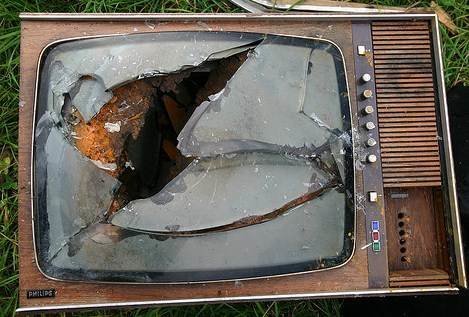The I's Have It: 3 Key Tenets to Approaching VR
Simon Pont, chief strategy officer at social video broadcaster Brave Bison, on how best to approach VR.
Deaths are so often exaggerated. Not in the real world you understand; I'm refering more to the metaphorical/euphemistic deaths. Death of showbiz. Death of decency. Death of TV.
None, of course, are 100 per cent true. The media hyperbolises which, later, in some instances, does create the impact that can turn it into a self-fulfilling prophecy. TV’s role, for example, has changed for sure. But just as video never really did kill the radio star, current 'next big things' are not going to lead TV to the gladiatorial slaughter.

And this brings us to VR.
It, too, has been touted as the next this and the next that, but for me VR is not a replacement for anything, it is its own medium. It's not film, nor is it TV. And it is not merely a subset or evolution of ‘gaming’.
I believe VR will be the Fifth Wave in audio-visual experience after TV, film, online (video) and gaming. However, it will come with its own rules and a different set of parameters around role-play and immersion.
In fact there are three I’s which will help to answer how VR is different:
Immersive
It is like putting on a pair of swimming goggles and jumping in the deep end, where in an instant, you are immersed. Blink: and your world has changed. A new world is formed and you’re right in the middle.

This content landscape is distinctly new. You can’t help but think training simulations are the most obvious application – and not just ones where you imagine seeing enemy combatants through night scopes.
An early pioneer was this 2014 Wear the Rose execution [below] funded by sponsor O2, which affords the viewer the experience of training with the England Rugby team. It’s somewhere around 2 minutes in, on the second or third set piece, that you start to genuinely develop a sense of what being a squad member on a training day feels like.
Intimate
The Silver Screen, particularly in its larger IMAX formats, has a kind of shock and awe effect: scale, grandeur, spectacle of a spectacular scale. Cinema’s 'knock-out punch' potential has always been its inherent bigness.
VR is a different beast all together, potentially even the opposite of cinema, in that VR feels intimate. An early impression is that the VR opportunity lies in striking a very different kind of rapport with audiences.
Watch Mini’s Backwater [below] on a VR headset, and at the four-minute mark, you begin to feel slightly unsure as to whether you’re an invited part of the front seat couple’s moment. You are, by awkward definition, taking the role of voyeur.
Interestingly Mini describes Backwater as a “cinematic virtual reality experience”. One suspects this pairing of descriptors will prove itself a blind alley in the making of exceptional VR content.
Conversely, create the right narrative construct with the right smallness of scene and space, and VR may feel not just intimate, but voyeuristic. For content-makers, a technology that can engross and unsettle audiences in whole new ways is a seriously exciting proposition.
In purely narrative terms, VR will allow us to watch and witness like never before. For first person participation there will always be gaming, but VR will bring about a new level of narrative immersion, not fully participative, but where like Alice stepping through the Looking Glass, we are able to step though the Fourth Wall and effectively be within the story.
'I'
Author Adam Goldberg once described Twitter (and its motivating appeal) as “the marriage of full-tilt narcissism and full-tilt voyeurism finally colliding in 140 characters.”
It is, however, naive to say that we’re more self-obsessed or motivated by self-interest than we were, say, 10 or 20 years ago. Self-interest sits at the very heart of the human condition. Always has, always will. Apple cleverly worked it when they rolled out a range of products all starting with an 'i' prefix.

The self, ‘I’, is an important factor in understanding VR and the role it will come to play in our lives.
In the absence of exclusive real-life physical world experiences – say standing ready to receive serve behind the baseline of Wimbledon’s Centre Court – VR will digitally afford viewers a diluted taste of the real thing. It is a medium for first person wonder, for making the otherwise elusive possible by digital proxy.
And then working that in reverse, consider the moments where you did actually physically experience something, and happened to record it in 360 degrees.
Press ‘record’ when you ride a zip line or negotiate a mogul field, and with VR our self-documentation allows for the channelling memories on a level incredibly close to reliving.
Experience, Entertain, Escape
All content, whatever the medium, whatever the technology, must reward its audience. What’s thrilling is that VR has the potential to answer that call in ways that feel unique.
More than 20 years ago, in the pursuit of popcorn sales, movies like Strange Days and The Lawnmower Man fictionally speculated on a world where VR was possible. Today those speculations feel both wonderfully melodramatic and borderline dated – but the reality is that VR technology is now with us, and will be part of our viewing and experiential future. What we do creatively with that open-ended space marked ‘tomorrow’ is, as ever, up to us.

A scene from the 1992 film about virtual reality, The Lawnmower Man







 Membership
Membership




